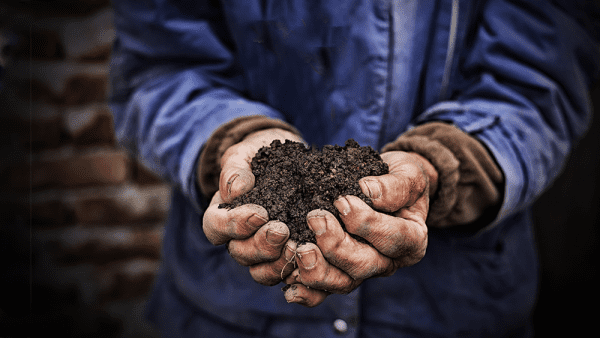Nestlé launches community cooperation to promote soil renewal agriculture in Western Transdanubia
Nestlé Hungária is encouraging a shift to regenerative agricultural practices through a community programme it has initiated in the Western Transdanubian region. In addition to preserving the natural assets of the region, the initiative will also promote the long-term security of its suppliers and the region’s ecosystem services through the Bük animal feed factory, one of the largest employers in the geographical area. In Hungary, the programme is supported by the Ministry of Agriculture.
As the world’s largest food company, Nestlé has a responsibility to transform food production and supply chains to contribute to the renewal of the planet’s natural resources and to a more sustainable diet for consumers.
“This summer’s drought has clearly shown the challenges facing our suppliers and our entire supply chain. Food raw material producers face a huge challenge from both the effects of climate change, such as increasingly frequent and prolonged droughts; damage caused by inappropriate, intensive farming practices; and factors such as fertiliser shortages, or rising raw material prices,” said Anna Hőgyész, Nestle Hungary Sustainability leader.

This is why Nestlé Purina’s pet food business has taken the initiative to launch the Landscape Enterprise Networks (LENs) programme, which was set up in the UK by the consultancy 3Keel and is already operating successfully in the UK, for the first time in the region in Hungary. The initiative could provide a solution to the challenges facing agriculture and food production and supply chains, particularly given that 60 per cent of the 140,000 tonnes of raw material supplied to the factory in Bük is sourced from Hungarian farmers.
The first phase of LENs Hungary, launched in 2022, is currently contributing more than €200,000 to the expansion of soil restoration land use practices in three different cereal farms on the area of 2000 hectares, and the implementation of nature-based solutions, improving the resilience of the affected areas and supply chains to Nestlé financing.
The initiative will be implemented in Hungary by the consultancy Preferred By Nature, with Syngenta helping to measure the results of the interventions and to prepare and validate the measurement methodology. The programme is also supported by the Ministry of Agriculture, as it focuses on issues of importance to domestic agriculture.
“Business solutions such as this support government efforts to increase the competitiveness of agriculture, while contributing to the response to the challenges of climate change, the creation of conditions for efficient food production and the sustainable use of finite natural resources,” said Dr. Anikó Juhász, Deputy State Secretary for Agriculture.
Nestlé will source a fifth of its key raw materials from areas cultivated using soil regeneration methods by 2025, and half five years later. Thanks to regenerative agriculture, the food industry’s production of raw materials can have less impact on the environment, while contributing to the regeneration of entire landscapes. The interventions increase soil water retention and carbon sequestration, biodiversity and water quality, while reducing soil erosion and carbon emissions from cultivation.
“ The interventions increase the soil’s ability to retain and seize water, biodiversity, improve water quality, but reduce soil erosion and carbon emissions from cultivation Within the framework of the LENs Hungary programme, we are also supporting the establishment of a network of farms to directly share experience and knowledge on soil regeneration agriculture,” said Bálint Lukács, LENs project manager for Preferred by Nature Hungary.

“A trading community built on business-based collaborations under the LENs programme will bring tangible benefits for businesses and income for farmers,” says Anna Hőgyész. And this is in the business interest of Nestlé, which recruits the majority of its grain suppliers in Hungary from the Western Transdanubian region and has a predominantly local supply chain through its pet food factory in Bük. But the initiative goes far beyond that: “Preserving natural assets is not only in the interest of the food and agriculture industry, as the functioning and value chain security of countless industries is linked to the functions provided by these assets,” says Anna Hőgyész.
More information on the independent, business-driven LENs initiative can be found here: https://landscapeenterprisenetworks.com/




Leave a Reply
Want to join the discussion?Feel free to contribute!